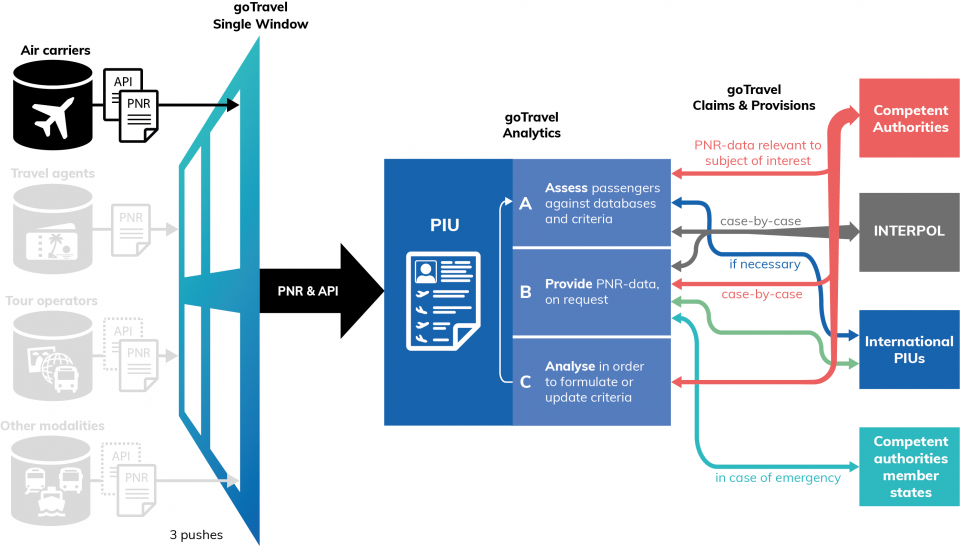New reports on DHS surveillance and profiling
Two new reports from university think-tanks call attention to surveillance and profiling — including surveillance of, and action against, domestic and international travelers — by the Department of Homeland Security and its components.
A Course Correction for Homeland Security, a report by the Brennan Center for Justice at New York University, cites to some of our work and some examples of cases we have been involved with in its analysis of DHS data collection (surveillance), and “risk assessments” (algorithmic profiling and control), especially as they relate to travelers.
American Dragnet: Data-Driven Deportation in the 21st Century, a report by the Center on Privacy and Technology at Georgetown University Law School, focuses on DHS’s Immigration and Customs Enforcement (ICE) division, especially ICE access to facial images and other information obtained from drivers licenses and commercial data brokers.
A common theme of both reports is that DHS surveillance is more pervasive, more intrusive, and less visible than is generally recognized.
Airline reservations and demands for ID from travelers are used not merely to check for currently blacklisted would-be travelers, but are retained and used to build travel histories and social networks maps that are then used by suspicion-generating guilt-by-association algorithms to expand the web of surveillance, profiling, and extrajudicial blacklisting.
ICE represents itself as an agency with jurisdiction only over non-US citizens, but in fact runs photos and drivers license and location data about a large fraction of the entire population of US citizens through its profiling and enforcement algorithms. DHS lurks (usually invisibly) in the background, “ingesting” or obtaining access to personal information, when individuals pose for drivers license photos, make airline reservations, or interact with businesses that “share” data directly or indirectly with DHS.
What is to be done about this sorry state of affairs?
Both of these reports suggest that some reforms could be made by policy, at the direction of the President, the Secretary of Homeland Security, or the heads of DHS components.
However, given the thoroughly bipartisan continuity of support by both Democratic and Republican administrations for the continual expansion of DHS surveillance, especially of travelers and foreigners and most especially of border crossers, since its creation 20 years ago, we have little hope for reform from within DHS or at the behest of the White House.
Exposure of abuses is good, but more is needed than a change of administration policy.
While we welcome any additional attention paid to the problems with the DHS, we think they call for court action to uphold the Constitutional and treaty rights of travelers and other individuals, and Congressional action to effectuate those rights and to facilitate judicial review and redress for government actions that violate those rights.
The DHS, as these reports reveal, is an ever-growing dragnet surveillance agency, operating outside the rule of law. What are we going to do to alter or to abolish it?
